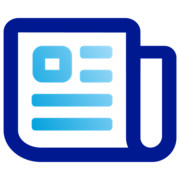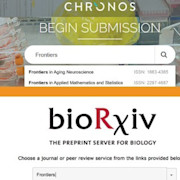- Science News
- Frontiers news
- Funders share insights on open science
Funders share insights on open science
Earlier this spring Frontiers hosted a research funders discussion forum to explore the challenges and opportunities faced by funders in supporting and incentivizing open science. Representatives from the European Research Council (ERC), Research Foundation-Flanders (FWO), Volkswagen Foundation and FIIBAP came together for the first time in an open discussion about the respective roles of funders and publishers in open science.

Credit: Frontiers
During the conversation they all agreed that, while the level of support offered may differ depending on the type and size of the funder, all share a common objective to facilitate open access publishing and other open science practices for researchers. During the discussion, the funders shared their policies on open science and their approaches to creating guidance for researchers. Open access to publications and open research data were identified by the participants as priority issues. All funders reported finding it challenging to focus on the various elements of open science simultaneously but also acknowledged that it was critical to be able to do so.
Equity and cost were brought up as challenges that all open science actors should contribute towards solving. This was seen to be particularly important for larger funders. These funders can provide generous resources to carry out research but often attach complex requirements to their grants. Although this does not discourage participation in funding programs, it can make it difficult for researchers to comply with requirements. For smaller funders, the situation was viewed slightly differently. For these funders, the main issues were seen to be related to the challenge of providing adequate, secure funding to enable grantees to allocate funds for publishing services.
Funders suggested that to better support the research process and help authors comply with publishing requirements, publishers could provide more comprehensive guidance and quality metadata. The funders also highlighted the opportunity for publishers to reduce the administrative burden on researchers by centralizing processes. This could include institutional agreements with funders, the automatic addition of publications to trusted repositories, and the reduction of paperwork, especially when the same information is requested more than once.
Participants mentioned the importance of the ongoing exchange of information between funders and finding common approaches to supporting and incentivizing open science. It was suggested that it would be valuable to continue the conversation in further discussion sessions, bringing in new topics and participants. Frontiers would like to facilitate this and looks forward to hosting further sessions in the near future.
As an open access publisher with the mission to make all science open, Frontiers emphasizes building relationships with research funders who are important strategic actors with the power to accelerate the transition to open science. Frontiers is committed to ensuring that we provide the necessary support to researchers, authors, editors, other stakeholders and of course the funders themselves. As part of this commitment, we strive to provide fair, high-quality, and tailored solutions to funders who want to enter an institutional partnership with us.
If you would like to find out more about this or future events or to discuss our partnership models, please get in touch via institutions@frontiersin.org.
About Frontiers
Frontiers is the 3rd most-cited and 6th largest research publisher. We publish ground-breaking discoveries by the world’s top experts. Scientists empower society and our mission is to accelerate scientific discovery by making science open. We place the researcher at the center of everything we do and enable the research community to develop the solutions we need to live healthy lives on a healthy planet. Featuring custom-built technology, artificial intelligence, and rigorous quality standards, our research articles have been viewed more than 2.4 billion times, reflecting the power of research that is open for all.







